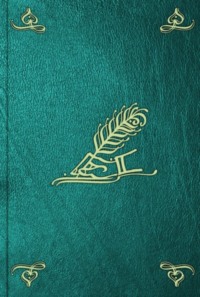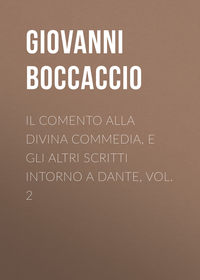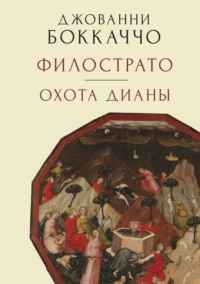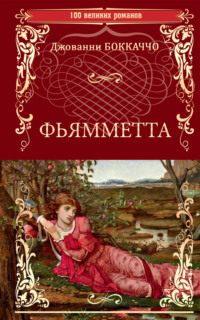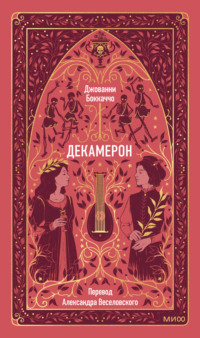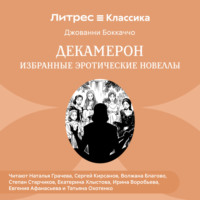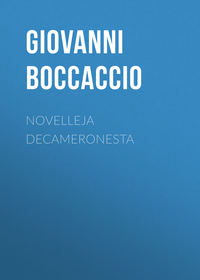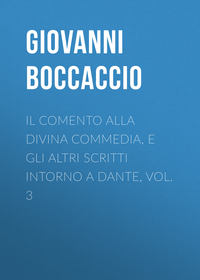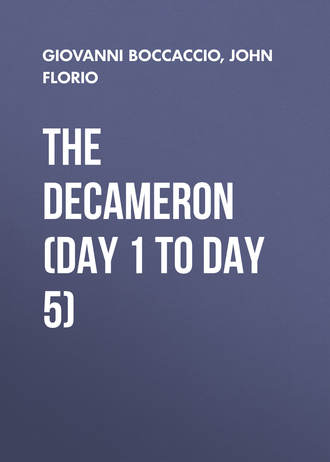 полная версия
полная версияThe Decameron (Day 1 to Day 5)
While matters proceeded in this manner, Marquiso and Stechio, understanding how roughly the Potestates Lieutenant dealt with Martellino and that he had already given him the Strappado; were in heavy perplexity, saying to themselves; we have carried this businesse very badly, redeeming him out of the Frying-pan, and flinging him into the Fire. Whereupon, trudging about from place to place, & meeting at length with their Host, they told him truly how all had happened, whereat hee could not refraine from laughing. Afterward, he went with them to one Master Alexander Agolante, who dwelt in Trevers, and was in great credite with the Cities cheefe Magistrate, to whom hee related the whole Discourse; all three earnestly entreating him, to commisserate the case of poore Martellino.
Master Alexander, after he had laughed heartily at this hotte peece of service, went with him to the Lord of Trevers; prevailing so well with him, that he sent to have Martellino brought before him. The Messengers that went for him, found him standing in his shirt before the Judge, very shrewdly shaken with the Strappado, trembling and quaking pittifully. For the Judge would not heare any thing in his excuse; but hating him (perhaps) because hee was a Florentine: flatly determined to have him hangde by the necke, and would not deliver him to the Lorde, untill in meere despight he was compeld to do it.
The Lord of Trevers, when Martellino came before him, and had acquainted him truly with every particular: Master Alexander requested, that he might be dispatched thence for Florence, because he thought the halter to be about his necke, and that there was no other helpe but hanging. The Lord, smiling (a long while) at the accident, & causing Martellino to be handsomely apparrelled, delivering them also his Passe, they escaped out of further danger, and tarried no where, till they came unto Florence.
Rinaldo de Este, after he was robbed by Theeves, arrived at Chasteau Guillaume, where he was friendly lodged by a faire widdow, and recompenced likewise for all his losses; returning afterward safe and well home into his owne houseThe second Novell
Whereby wee may learne, that such things as sometime seeme hurtfull to us, may turne to our benefit and commodityMuch merriment was among the Ladies, hearing this Tale of Martellinos misfortunes, so familiarly reported by Madam Neiphila, and of the men, it was best respected by Philostratus, who sitting neerest unto Neiphila, the Queene commanded his Tale to be the next, when presently he began to speake thus.
Gracious Ladies, I am to speake of universall occasions, mingled with some misfortunes in part, and partly with matters leaning to love: as many times may happen to such people, that trace the dangerous pathes of amorous desires, or have not learned perfectly, to say S. Julians pater noster, having good beds of their owne, yet (casually) meete with worser lodging.
In the time of Azzo, Marquesse of Ferrara, there was a Marchant named Rinaldo de Este, who being one day at Bologna, about some especiall businesse of his owne; his occasions there ended, and riding from thence towards Verona, he fell in company with other Horsemen, seeming to be Merchants like himselfe; but indeede were Theeves, men of most badde life and conversation; yet he having no such mistrust of them, rode on, conferring with them very familiarly. They perceiving him to be a Merchant, and likely to have some store of money about him, concluded betweene themselves to rob him, so soone as they found apt place and opportunity. But because he should conceive no such suspition, they rode on like modest men, talking honestly & friendly with him, of good parts and disposition appearing in him, offering him all humble and gracious service, accounting themselves happy by his companie, as hee returned the same courtesie to them, because he was alone, and but one servant with him.
Falling from one discourse to another, they began to talke of such prayers, as men (in journey) use to salute God withall; and one of the Theeves (they being three in number), spake thus to Rinaldo. Sir, let it be no offence to you, that I desire to know, what prayer you most use when thus you travell on the way? Whereto Rinaldo replyed in this manner. To tell you true Sir, I am a man grosse enough in such Divine matters, as medling more with Marchandize, then I do with Bookes. Neverthelesse, at all times when I am thus in journey, in the morning before I depart my Chamber, I say a Pater noster and an Ave Maria, for the souls of the father and mother of Saint Julian, and after that, I pray God and S. Julian to send me a good lodging at night. And let me tell you Sir, that very oftentimes heeretofore, I have met with many great dangers upon the way, from all which I still escaped, and evermore (when night drewe on) I came to an exceeding good Lodging. Which makes mee firmely beleeve, that Saint Julian (in honour of whom I speake it) hath begd of God such great grace for me; and mee thinkes, that if any day I should faile of this prayer in the morning: I cannot travaile securely, nor come to a good lodging. No doubt then Sir (quoth the other) but you have saide that prayer this morning? I would be sorry else, saide Rinaldo, such an especiall matter is not to be neglected.
He and the rest, who had already determined how to handle him before they parted, saide within themselves: Looke thou hast said thy praier, for when we have thy money, Saint Julian and thou shift for thy lodging. Afterward, the same man thus againe conferd with him. As you Sir, so I have ridden many journies, and yet I never used any such praier, although I have heard it very much commended, and my lodging hath prooved never the worser. Perhaps this verie night will therein resolve us both, whether of us two shall be the best lodged; you that have sayde the prayer, or I that never used it at all. But I must not deny, that in sted thereof, I have made use of some verses, as Dirupisti, or the Jutemerata, or Deprofundis, which are (as my Grandmother hath often told mee) of very great vertue and efficacy.
Continuing thus in talke of divers things, winning way, and beguiling the time, still waiting when their purpose should sort to effect: it fortuned, that the Theeves seeing they were come neere to a Towne, called Casteau Guillaume, by the foord of a River, the houre somewhat late, the place solitarie, and thickely shaded with trees, they made their assault; and having robd him, left him there on foote, stript into his shirt, saying to him. Goe now and see, whether thy Saint Julian will allow thee this night a good lodging, or no, for our owne we are sufficiently provided; so passing the River, away they rode. Rinaldoes servant, seeing his Master so sharply assayled, like a wicked villaine, would not assist him in any sort: but giving his horse the spurres, never left gallowping, untill hee came to Chasteau Guillaume, where hee entred upon the point of night, providing himselfe of a lodging, but not caring what became of his Master.
Rinaldo remaining there in his shirt, bare-foote and bare-legged, the weather extremely colde, and snowing incessantly, not knowing what to doe, darke night drawing on, and looking round about him, for some place where to abide that night, to the end he might not dye with colde: he found no helpe at all there for him, in regard that (no long while before) the late warre had burnt and wasted all, and not so much as the least Cottage left. Compelled by the coldes violence, his teeth quaking, and all his body trembling, hee trotted on towards Chasteau Guillaume, not knowing, whether his man was gone thither or no, or to what place else: but perswaded himselfe, that if he could get entrance, there was no feare of finding succour. But before he came within halfe a mile of the Towne, the night grew extreamely darke, and arriving there so late, hee found the gates fast lockt, and the Bridges drawne up, so that no entrance might be admitted.
Grieving greatly hereat, and being much discomforted, rufully hee went spying about the walls, for some place wherein to shrowd himselfe, at least, to keepe the snow from falling upon him. By good hap, hee espied an house upon the wall of the Towne, which had a terrace jutting out as a penthouse, under which he purposed to stand all the night, and then to get him gone in the morning. At length, hee found a doore in the wall, but very fast shut, and some small store of strawe lying by it, which he gathered together, and sitting downe thereon very pensively; made many sad complaints to Saint Julian, saying: This was not according to the trust he reposed in her. But Saint Julian, taking compassion upon him, without any over-long tarying; provided him of a good lodging, as you shall heare how.
In this towne of Chasteau Guillaume, lived a young Lady, who was a widdow, so beautifull and comely of her person, as sildome was seene a more lovely creature. The Marquesse Azzo most dearely affected her, and (as his choysest Jewell of delight) gave her that house to live in, under the terrace whereof poore Rinaldo made his shelter. It chaunced the day before, that the Marquesse was come thither, according to his frequent custome, to weare away that night in her company, she having secretly prepared a Bath for him, and a costly supper beside. All things being ready, and nothing wanting but the Marquesse his presence: suddenly a Post brought him such Letters, which commanded him instantly to horsebacke, and word hee sent to the Lady, to spare him for that night, because urgent occasions called him thence, and hee rode away immediately.
Much discontented was the Lady at this unexpected accident, and not knowing now how to spend the time, resolved to use the Bath which hee had made for the Marquesse, and (after supper) betake her selfe to rest, and so she entred into the Bath. Close to the doore where poore Rinaldo sate, stoode the Bath, by which meanes, shee being therein, heard all his quivering moanes, and complaints, seeming to be such, as the Swanne singing before her death: whereupon, shee called her Chamber-maide, saying to her. Goe up above, and looke over the terrace on the wall downe to this doore, and see who is there, and what hee doth. The Chamber-maide went up aloft, and by a little glimmering in the ayre, she saw a man sitting in his shirt, bare on feete and legges, trembling in manner before rehearsed. Shee demaunding, of whence, and what hee was; Rinaldoes teeth so trembled in his head, as very hardly could hee forme any words, but (so well as he could) tolde her what hee was, and how hee came thither: most pittifully entreating her, that if shee could affoord him any helpe, not to suffer him starve there to death with colde.
The Chamber-maide, being much moved to compassion, returned to her Lady, and tolde her all; she likewise pittying his distresse, and remembring shee had the key of that doore, whereby the Marquesse both entred and returned, when he intended not to be seene of any, said to her Maide. Goe, and open the doore softly for him; we have a good supper, and none to helpe to eate it, and if he be a man likely, we can allow him one nights lodging too. The Chamber-maide, commending her Lady for this charitable kindnesse, opened the doore, and seeing hee appeared as halfe frozen, shee said unto him. Make hast good man, get thee into this Bath, which yet is good and warme, for my Lady her selfe came but newly out of it. Whereto very gladly he condiscended, as not tarrying to be bidden twise; finding himselfe so singularly comforted with the heate thereof, even as if hee had beene restored from death to life. Then the Lady sent him garments, which lately were her deceased husbands, and fitted him so aptly in all respects, as if purposely they had beene made for him.
Attending in further expectation, to know what else the Lady would commaund him; hee began to remember God and Saint Julian, hartily thanking her, for delivering him from so bad a night as was threatned towards him, and bringing him to so good entertainement. After all this, the Lady causing a faire fire to be made in the neerest Chamber beneath, went and sate by it her selfe, demaunding how the honest man fared. Madame, answered the Chamber-maide, now that he is in your deceased Lords garments, he appeareth to be a very goodly Gentleman, and (questionlesse) is of respective birth and breeding, well deserving this gracious favour which you have afforded him. Goe then (quoth the Lady) and conduct him hither, to sit by this fire, and sup here with mee, for I feare he hath had but a sorrie supper. When Rinaldo was entred into the Chamber, and beheld her to be such a beautifull Lady, accounting his fortune to exceede all comparison, hee did her most humble reverence, expressing so much thankefulnesse as possibly hee could, for this her extraordinary grace and favour.
The Lady fixing a stedfast eye upon him, well liking his gentle language and behaviour, perceiving also, how fitly her deceased husbands apparell was formed to his person, and resembling him in all familiar respects, he appeared (in her judgement) farre beyond the Chambermaides commendations of him; so praying him to sit downe by her before the fire, shee questioned with him, concerning this unhappy nights accident befalne him, wherein he fully resolved her, and shee was the more perswaded, by reason of his servants comming into the Towne before night, assuring him, that he should be found for him early in the morning.
Supper being served in to the Table, and hee seated according as the Lady commanded, shee began to observe him very considerately; for he was a goodly man, compleate in all perfections of person, a delicate pleasing countenance, a quicke alluring eye, fixed and constant, not wantonly gadding, in the joviall youthfulnesse of his time, and truest temper for amorous apprehension; all these were as battering engines against a Bulwarke of no strong resistance, and wrought strangely upon her flexible affections. And though hee fed heartily, as occasion constrained, yet her thoughts had entertained a new kinde of diet, digested onely by the eye; yet so cunningly concealed, that no motive to immodesty could be discerned. Her mercy thus extended to him in misery, drew on (by Table discourse) his birth, education, parents, friends, and alies; his wealthy possessions by Merchandize, and a sound stability in his estate, but above all (and best of all) the single and sole condition of a batcheler; an apt and easie steele to strike fire, especially upon such quicke taking tinder, and in a time favoured by Fortune.
No imbarment remained, but remembrance of the Marquesse, and that being summond to her more advised consideration, her youth and beauty stood up as conscious accusers, for blemishing her honour and faire repute, with lewd and luxurious life; farre unfit for a Lady of her degree, and well worthy of generall condemnation. What should I further say? upon a short conference with her Chambermaide, repentance for sinne past, and solemne promise of a constant conversion, thus shee delivered her minde to Rinaldo.
Sir, as you have related your fortunes to me, by this your casuall happening hither, if you can like the motion so well as shee that makes it, my deceased Lord and husband living so perfectly in your person; this house, and all mine, is yours; and of a widow I will become your wife, except (unmanly) you denie me. Rinaldo hearing these words, and proceeding from a Lady of such absolute perfections, presuming upon so proud an offer, and condemning himselfe of folly if he should refuse it, thus replied. Madam, considering that I stand bound for ever hereafter, to confesse that you are the gracious preserver of my life, and I no way able to returne requitall; if you please so to shadow mine insufficiency, and to accept me and my fairest fortunes to doe you service: let me die before a thought of deniall, or any way to yeeld you the least discontentment.
Here wanted but a Priest to joyne their hands, as mutuall affection already had done their hearts, which being sealed with infinite kisses; the Chamber-maide called up Friar Roger her Confessor, and wedding and bedding were both effected before the bright morning. In briefe, the Marquesse having heard of the marriage, did not mislike it, but confirmed it by great and honourable gifts; and having sent for his dishonest servant, he dispatched him (after sound reprehension) to Ferrara, with Letters to Rinaldoes Father and friends, of all the accidents that had befalne him. Moreover, the very same morning, the three theeves, that had robbed, and so ill entreated Rinaldo, for another facte by them the same night committed; were taken, and brought to the Towne of Chasteau Guillaume, where they were hanged for their offences, and Rinaldo with his wife rode to Ferrara.
Three young Gentlemen, being brethren, and having spent all their Lands and possessions vainely, became poore. A Nephew of theirs (falling almost into as desperate a condition) became acquainted with an Abbot, whom he afterward found to be the King of Englands Daughter, and made him her Husband in marriage, recompencing all his Uncles losses, and seating them againe in good estateThe third Novell
Wherein is declared the dangers of Prodigalitie, and the manifold mutabilities of FortuneThe fortunes of Rinaldo de Este, being heard by the Ladies and Gentlemen, they admired his happinesse, and commended his devotion to Saint Julian, who (in such extreame necessity) sent him so good succour. Nor was the Lady to be blamed, for leaving base liberty, and converting to the chaste embraces of the marriage bed, the dignity of womens honour, and eternall disgrace living otherwise. While thus they descanted on the happy night betweene her and Rinaldo, Madam Pampinea sitting next to Philostratus, considering, that her discourse must follow in order, and thinking on what shee was to say; the Queene had no sooner sent out her command, but shee being no lesse faire then forward, beganne in this manner.
Ladies of great respect, the more we conferre on the accidents of Fortune, so much the more remaineth to consider on her mutabilities, wherein there is no need of wonder, if discreetly we observe, that all such things as we fondly tearme to be our owne, are in her power, and so (consequently) change from one to another, without any stay or arrest (according to her concealed judgement) or setled order (at least) that can bee knowne to us. Now, although these things appeare thus daily to us, even apparantly in all occasions, and as hath beene discerned by some of our precedent discourses; yet notwithstanding, seeing it pleaseth the Queene, that our arguments should ayme at these ends, I will adde to the former tales another of my owne, perhaps not unprofitable for the hearers, nor unpleasing in observation.
Sometime heeretofore, there dwelt in our Citie, a Knight named Signior Thebaldo, who (according as some report) issued from the Family of Lamberti, but others derive him of the Agolanti; guiding (perhaps) their opinion heerein, more from the traine of children, belonging to the saide Thebaldo (evermore equall to that of the Agolanti) then any other matter else. But setting aside, from which of these two houses he came, I say, that in his time he was a very welthy Knight, & had three Sonnes; the first being named Lamberto, the second Thebaldo, & the third Agolanto, all goodly and gracefull youths: howbeit, the eldest had not compleated eighteene yeares, when Signior Thebaldo the father deceased, who left them all his goods and inheritances. And they, seeing them selves rich in readie monies and revennewes, without any other government then their owne voluntary disposition, kept no restraint upon their expences, but maintained many servants, and store of unvalewable horses, beside Hawkes and Hounds, with open house for all commers; and not onely all delights else fit for Gentlemen, but what vanities beside best agreed with their wanton and youthfull appetites.
Not long had they run on this race, but the treasures lefte them by their Father, began greatly to diminish; and their revennewes suffised not, to support such lavish expences as they had begun: but they fell to engaging and pawning their inheritances, selling one to day, and another to morrow, so that they saw themselves quickly come to nothing, and then poverty opened their eyes, which prodigality had before closed up. Heereupon, Lamberto (on a day) calling his Brethren to him, shewed them what the honours of their Father had beene, to what height his wealth amounted, and now to what an ebbe of poverty it was falne, onely thorow their inordinate expences. Wherefore hee counselled them, (as best he could) before further misery insulted over them; to make sale of the small remainder that was left, and then to betake themselves unto some other abiding, where fairer Fortune might chance to shine uppon them.
This advice prevailed with them; and so, without taking leave of any body, or other solemnity then closest secrecy, they departed from Florence, not tarrying in any place untill they were arrived in England. Comming to the City of London, and taking there a small house upon yearly rent, living on so little charge as possible might be, they began to lend out money at use: wherein Fortune was so favourable to them, that (in few yeares) they had gathered a great summe of mony: by means whereof it came to passe, that one while one of them, and afterward another, returned backe againe to Florence: where, with those summes, a great part of their inheritances were redeemed, and many other bought beside. Linking themselves in marriage, and yet continuing their usances in England; they sent a Nephew of theirs thither, named Alessandro, a yong man, and of faire demeanor, to maintaine their stocke in employment: while they three remained still at Florence, and growing forgetful of their former misery, fell againe into as unreasonable expences as ever, never respecting their houshold charges, because they had good credite among the Merchants, and the monies still sent from Alessandro, supported their expences divers yeares.
The dealings of Alessandro in England grew very great, for hee lent out much money to many Gentlemen, Lords, and Barons of the Land, upon engagement of their Manours, Castles, and other revennues: from whence he derived immeasurable benefite. While the three Brethren held on in their lavish expences, borrowing moneys when they wanted untill their supplyes came from England, whereon (indeede) was their onely dependance: it fortuned, that (contrary to the opinion of al men) warre happened betweene the King of England, and one of his sonnes, which occasioned much trouble in the whole Countrey, by taking part on either side, some with the Sonne, and other with the Father. In regard whereof, those Castles and places pawned to Alessandro, were sodainely seized from him, nothing then remaining that returned him any profit. But living in hope day by day, that peace would be concluded betweene the Father and the Sonne, he never doubted, but all things then should be restored to him, both the principall and interest, & therefore he would not depart out of the Country.
The three Brethren at Florence, bounding within no limites their disordered spending, borrowed daily more and more. And after some few yeares, the Creditors seeing no effect of their hopes to come from them, all credit being lost with them, and no repayment of promised dues; they were imprisoned, their landes and all they had, not suffising to pay the moity of debts, but their bodies remained in prison for the rest, theyr Wives and yong children being sent thence, some to one village, some to another, so that nothing now was to be expected, but poverty & misery of life forever.
As for honest Alessandro, who had awaited long time for peace in England, perceyving there was no likelyhood of it; and considering also, that (beside his tarrying there in vaine to recover his dues) he was in danger of his life; without any further deferring, hee set away for Italy. It came to passe, that as he issued foorth of Bruges, hee saw a yong Abbot also journeying thence, being cloathed in white, accompanied with divers Monkes, and a great traine before, conducting the needefull carriage. Two ancient Knights, Kinsmen to the King, followed after, with whom Alessandro acquainted himselfe, as having formerly known them, and was kindly accepted into their company. Alessandro riding along with them, courteously requested to know, what those Monks were that rode before, and such a traine attending on them? Whereto one of the Knights thus answered.


